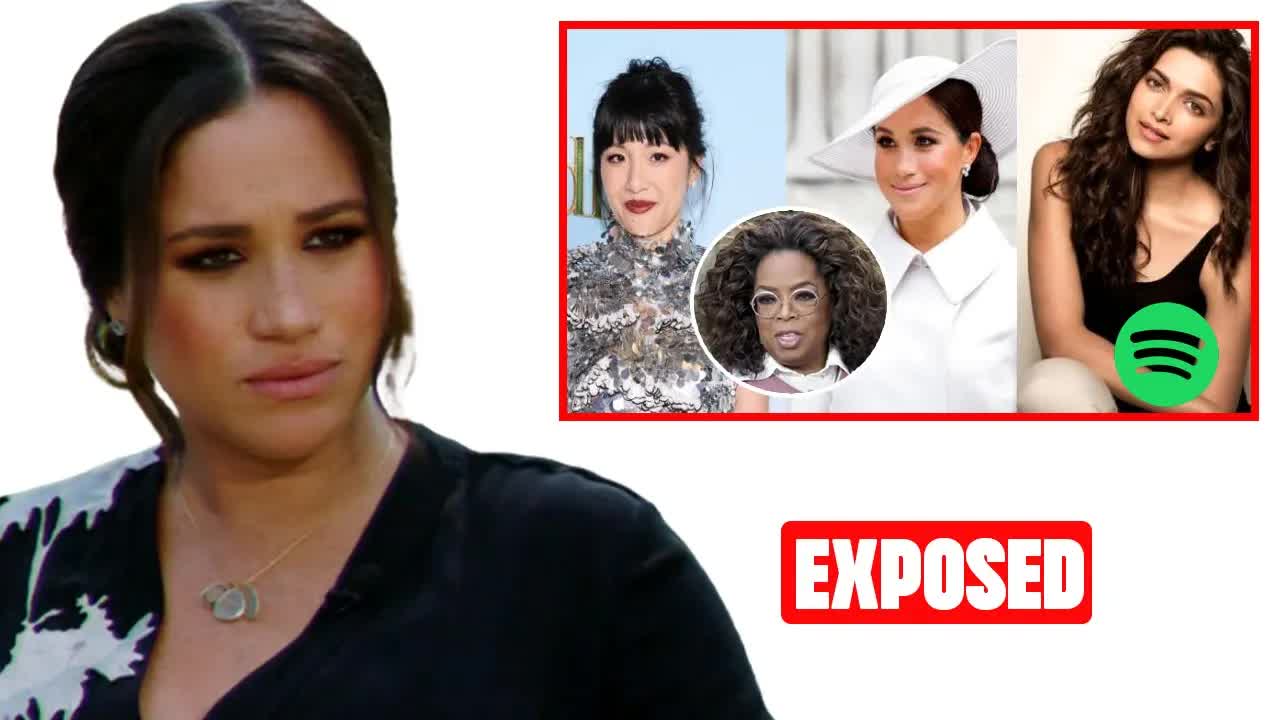The News
Meghan Markle’s Podcast Sparks Controversy Over Mental Health Claims
In the latest episode of her podcast series “Archetypes,” Meghan Markle dives deep into the complex and often stigmatizing labels that society attaches to women, particularly the term “crazy.”
Titled “The Decoding of Crazy,” this fifth episode features conversations with notable guests like Constance Wu, Jenny Slate, and Deepika Padukone.
While Markle aims to shed light on the damaging effects of such labels, critics argue that her approach may backfire, leaving her message muddled.
Markle opened the episode by expressing her strong feelings about how casually the term “crazy” is used, especially when directed at women.
She highlighted the stigma surrounding this word, emphasizing its silencing impact on women who face genuine mental health challenges.
According to Markle, many women feel compelled to internalize their struggles due to fear of judgment, leading them to suffer in silence.
As the discussion unfolded, Markle shared her personal journey toward mental wellness, reflecting on the relentless scrutiny she faced from the British media.
She recounted a particularly low moment when her husband, Prince Harry, played a crucial role in connecting her with professional help.
“I think of my worst point being finally connected to someone that, you know, my husband has found a referral for me to call,” she recalled, describing a vulnerable phone call she made while the therapist was at the grocery store.
The emotional weight of Markle's story resonated with many listeners, but some critics were quick to point out inconsistencies in her narrative.
A Twitter user, presumably a supporter of the Sussexes, expressed skepticism about Markle's claims, suggesting that her account of Harry finding her a therapist contradicted earlier statements made during her interview with Oprah Winfrey, where she claimed to have received no support.
This contradiction sparked a flurry of online commentary, with one user suggesting that Spotify should hire a fact-checker to keep track of Markle's evolving stories.
The user's remarks echoed a growing sentiment among detractors who believe Markle struggles to maintain a coherent narrative regarding her mental health journey.
In her 2021 interview with Oprah, Markle had candidly shared her struggles with suicidal thoughts, admitting how difficult it was to open up to Harry about her pain.
“I was ashamed to say at the time… but I knew that if I didn't say it then I would do it,” she had said, highlighting the gravity of her mental health crisis.
This revelation painted a stark picture of her struggles, contrasting sharply with her more recent claims.
Commentary surrounding Markle's podcast has been polarized, with some listeners praising her for tackling such important issues.
However, others have criticized her for what they perceive as a lack of depth in her arguments.
One online commentator described her thought process as immature and accused her of losing focus in her attempts to convey meaningful messages.
Further criticism came from those who felt Markle's privileged lifestyle overshadowed her attempts to connect with marginalized voices.
Some argued that her experiences do not resonate with the everyday struggles faced by many people, suggesting that her insights may be more self-serving than genuinely empathetic.
Another critic pointed out that Markle's knowledge appears superficial, limited primarily to topics that align with her luxurious lifestyle.
They contended that her education, which reportedly strained her father's finances, did not equip her with a broader understanding of culture, history, or the arts.
As the episode continues to circulate online, it raises questions about the authenticity and impact of Markle's message.
While she seeks to address significant issues related to mental health, the backlash suggests that her delivery may overshadow her intentions.
In the end, Markle's podcast serves as a reminder of the complexities surrounding mental health discussions, particularly in the context of personal narratives that can sometimes blur the lines between vulnerability and performance.






























































